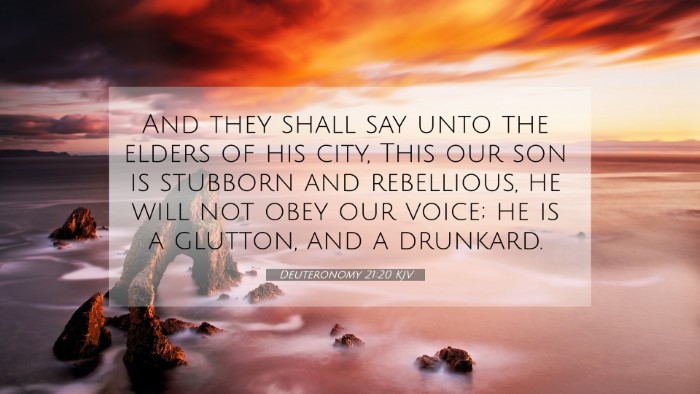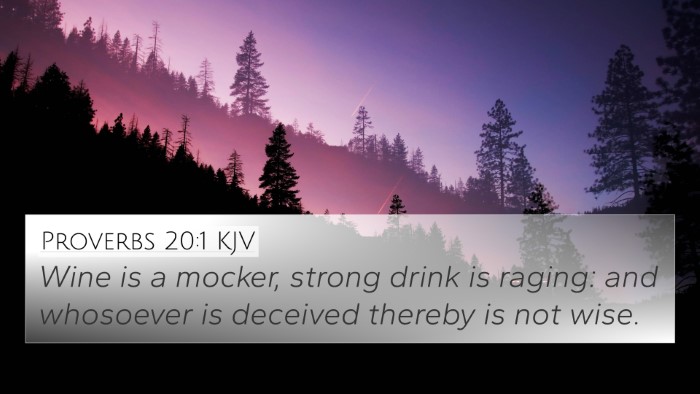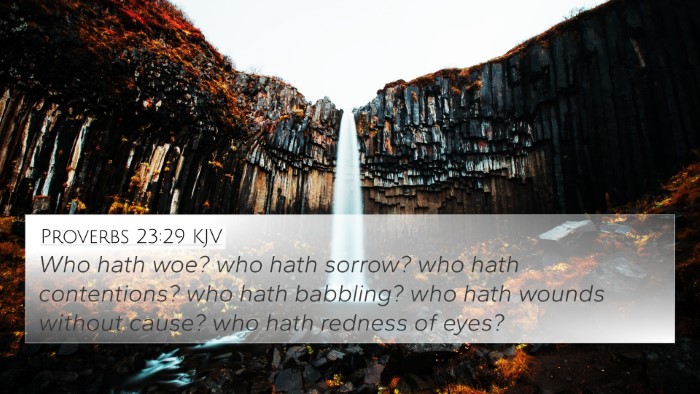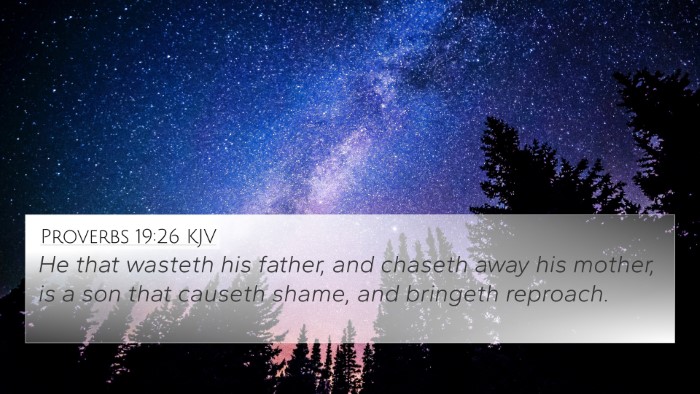Understanding Deuteronomy 21:20
Verse Reference: Deuteronomy 21:20
Deuteronomy 21:20 states:
"And they shall say unto the elders of his city, This our son is stubborn and rebellious, he will not obey our voice; he is a glutton, and a drunkard."
This verse is a portion of the law regarding rebellious children in Israel, providing an explicit instruction about conduct and accountability within families.
Commentary Insights
Matthew Henry's Commentary
Matthew Henry emphasizes the gravity of rebellion against parental authority. He points out that this scripture outlines a drastic course of action due to the serious nature of continuous defiance and the impact on the community's moral fabric.
Henry remarks on the distinction between minor disobedience and the rebellion described, suggesting it reflects a life that persistently rejects familial guidance.
Albert Barnes' Notes
Albert Barnes interprets this verse in the context of legal repercussions for dishonor towards parents, asserting that such behavior was not only a personal failure but a societal issue that warranted communal response.
He notes that the terms "glutton" and "drunkard" indicate a deeper character flaw that transcends mere youthfulness—suggesting a habitual disregard for sober living and responsibility.
Adam Clarke's Commentary
Adam Clarke takes a historical view, linking this law to ancient Israelite society where public order hinged on family structure. He underscores that the decision to bring a case before the elders reflects not only familial but communal concern for maintaining societal values.
Clarke points out that such measures aimed to prevent further moral decay and protect the integrity of community life.
Biblical Cross-References
- Exodus 21:15: This verse discusses the punishment for striking a parent, highlighting the seriousness of disobedience.
- Proverbs 13:24: It addresses the necessity of discipline in parenting, suggesting that failing to correct a child is akin to not truly loving them.
- Proverbs 30:17: It warns of consequences for disrespecting parents, emphasizing the divine judgment that follows such actions.
- Matthew 15:4: Jesus cites the commandment regarding honoring parents, reinforcing the timeless relevance of this moral directive.
- Ephesians 6:1-3: In the New Testament, this passage reiterates the principle of children obeying their parents, showing continuity of this theme.
- Colossians 3:20: Similar to Ephesians, it reiterates the importance of obedience and the promise of blessing for honoring parents.
- 1 Timothy 5:8: It speaks to familial responsibility, indicating a Christian obligation to provide for one's household, paralleling the theme of structure and care from Deuteronomy.
Thematic Connections
The themes present in Deuteronomy 21:20 resonate throughout both the Old and New Testaments, presenting a clear framework for understanding parental authority, family integrity, and societal responsibility. The consequences of rebellion serve as a caution against undermining familial structures, crucial for any society's moral standing.
Conclusion
Understanding Deuteronomy 21:20 within its cultural and historical context is essential for grasping the depth of its message. By examining this verse alongside cross-references, one can draw connections that illuminate the broader Biblical narrative regarding obedience, authority, and community ethics.
SEO Keywords
- Bible verse cross-references
- Connections between Bible verses
- Linking Bible scriptures
- Comparative Bible verse analysis
- Bible verses that relate to each other







